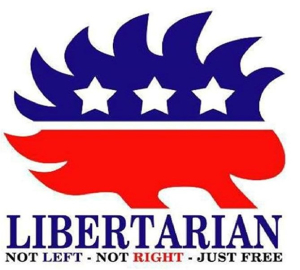
I find so many similarities between what’s happening with COVID and what’s happening with cryptocurrencies. Why? It’s all to do with how they’re regulated.
I don’t know about your country, but I’m in between two countries: the UK and Poland. After recently visiting the UK, where COVID rules are so confusing you have no idea whether you can go out, take a test, stay at home, see a concert, are in amber, amber plus, red or green zones whilst, in Poland, I have no idea what’s going on because I don’t speak Polish.
Now, I know I shouldn’t have written the above, but I feel the same way as above when it comes to cryptocurrencies. Almost every day, I read that they are bad, should be banned, are purely used by terrorists and the mafia, will be shut down and governments hate them. However, unlike with COVID in Poland, I speak crypto and know for a fact that governments are powerless over most of it.
The national governments that is; the networked governments are different. The networked governments regulate through consensus – the crowd determines what works; the national governments regulate through the implementation of law – the few try to make the laws work.
This is the massive difference between the past and the future, the few versus the many, the government versus the crowd.
If you went back over my blogging about this for the past decade+, you would find a consistent message: you cannot have money without government. For the libertarians, they rally against that message as they don’t like government; for the statists, they love that message as yes, currencies need a government.
What both miss is: who is the government?
It’s not nations anymore; it’s the network.
Therefore, when I saw two headlines over the weekend, it made me laugh.
The first one:
EU will make Bitcoin traceable and ban anonymous crypto wallets in anti-money laundering drive
Apparently Mairead McGuinness, Commissioner for Financial Services, Financial Stability and Capital Markets Union (@McGuinnessEU) and Ursula von der Leyen, President of the @EU_Commission (@vonderleyen), believe they can ban cryptocurrency trading for illicit purposes.
The second one:
No, the European Union Is Not ‘Banning Anonymous Crypto Wallets’
Where Coindesk makes it clear that the statements made by Mairead McGuiness are straight up FUD.
What intrigues me here is that the average person on the Clapham omnibus probably has no idea. As so many people point out: you have those who walk the line; those who cross over the line; and those who avoid the line.
The line we walk is between being caught and getting away with it. The line is enforced with more or less care, dependent upon government resources. The line the EU is trying to create is unenforceable. So, what could they do?
…
What they’re doing. They can enforce laws on anyone investing in or withdrawing funds from regulated exchanges in cryptocurrencies and track and trace them. The issue then, for those walking the line, is that they invest in unregulated exchanges to trade, they may lose their funds. That’s their risk.
Which would you rather do and who do you believe in: the state or the network?
Chris M Skinner
Chris Skinner is best known as an independent commentator on the financial markets through his blog, TheFinanser.com, as author of the bestselling book Digital Bank, and Chair of the European networking forum the Financial Services Club. He has been voted one of the most influential people in banking by The Financial Brand (as well as one of the best blogs), a FinTech Titan (Next Bank), one of the Fintech Leaders you need to follow (City AM, Deluxe and Jax Finance), as well as one of the Top 40 most influential people in financial technology by the Wall Street Journal's Financial News. To learn more click here...


